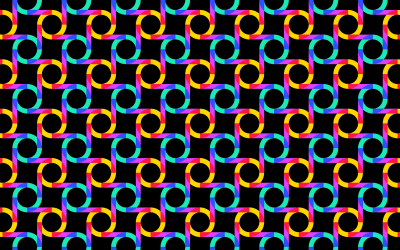Berlin, October 1, 2020 —
- The OLIOT mediation gateway (OLIOT-MG), developed by the Korean research institute KAIST (Korea Advanced Institute of Technology), has become an integral part of the “FIWARE Catalogue“. This will enable smart solutions powered by FIWARE to offer and consume information about objects, using the GS1 EPCIS standard.
- The innovative IT solution enables the interoperability of standards for event-based data capture, transfer, and query. The transferability to other applications as well as its scalability beyond the research project “Internet of Food & Farm 2020 (IoF2020)”, where it was developed, shows great potential to impact future initiatives in the IoT context.
FIWARE brings a curated framework of open source software platform components that can be assembled together and with other third-party components to build platforms, hereby supporting the development of smart solutions in a faster, easier, and cheaper way. The architecture of smart solutions powered by FIWARE gravitates around the management of digital twin data using the standard NGSI API.
GS1 is a global, neutral, non-profit standards organization that brings efficiency and transparency to the supply chain. EPCIS is a GS1 standard that enables supply chain partners to share information about the physical movement and status of products, as well as other objects, as they travel throughout the supply chain The goal of EPCIS is to enable disparate applications to create and share visibility event data, both within and across enterprises.
In detail, the OLIOT-MG creates a bridge between the FIWARE Context Broker, a core component in the architecture of any powered by FIWARE system exporting the NGSI API, and systems exposing an EPCIS (Electronic Product Code Information Services from GS1) interface. While Orion Context Broker uses the NGSI interface standard and focuses on digital twin data, EPCIS is the GS1 interface and data format standard for collecting and sharing visibility event data.
OLIOT (Open Language for Internet of Things) is an IoT infrastructure platform developed by extending GS1 codes and their standards, including EPCIS. The newly created gateway translates data from the systems powered by FIWARE, data exported from the Orion Context Broker to be concrete, into EPCIS Events so that they can be processed – for example, to record new Events, like transporting, or to query the history of an object.
OLIOT-MG has been developed as part of the EU/EC-funded Horizon 2020 Project “Internet of Food & Farm 2020 (IoF2020)” where concrete solutions have been tested covering 33 use cases in the arable, dairy, meat, vegetable, and fruit domains to assess the potential derived from the Digital Transformation of the European agricultural and food sector using internet of Things (IoT) technologies. The transferability of the results of this project, beyond research and beyond agrifood covering domains like logistics in manufacturing, for example, will influence emerging initiatives in the IoT context.
Involved in the development of OLIOT-MG are KAIST, GS1 Germany, the European EPC Competence Center (EECC), FIWARE Foundation, the Research Institute for Agriculture, Fisheries and Food (ILVO), Links Foundation, and the University of Wageningen (WUR). These parties have achieved the goal of their collaborative work following two years or joint research and development, namely to digitize processes along agricultural supply chains in order to lay the foundation for great productivity and sustainability, as well as to demonstrate interoperability between the two IT solutions, respectively standards.
“The OLIOT NGSI-EPCIS mediation gateway will enable systems powered by FIWARE to participate in networks where information about objects bearing Electronic Product Code (EPC) is shared. As a matter of fact, they will be able to inform about the disposition of EPC-bearing objects they manage in real-time as well as receive and process information from third systems that are relevant to support smart decisions or smarter automation of processes. This helps to position FIWARE as the open source platform of choice for those organizations looking for an IoT-enabled smart platform able to participate in the EPC-global network.” said Juanjo Hierro, CTO, FIWARE Foundation.
“Ideally, all supply chain partners are connected in real-time. Standardised interoperability between IoT platforms is therefore an absolute necessity in order to achieve this previously unattained ideal for future supply chains. Thanks to the gateway developed in the IoF2020 project, retailers, authorities, and consumers will be enabled to use the information collected with FIWARE in the EPCIS-based supply chain. Product quality no longer depends only on trust between partners, but can be checked in real-time at any time”, Nicolas Becker, Head of Business Analytics, European EPC Competence Center GmbH (EECC), explained.
In relevant IoF2020 use cases, the climate conditions in the barn at a certain time were examined, as well as, the rearing of pigs, for instance, when an animal ate or drank. In this case, traceability data was transferred to the Electronic Product Code Analytic Tool (EPCAT) which is the EPCIS solution of EECC.
“In the era of competing standards where data fragmentation is inevitable, interoperability is necessary to realize the federation of Internet of Things. In this regard, the OLIOT-MG plays its role in bridging entity-based (NGSI) IoT standards with the event-based (GS1 EPCIS) industry standards”, said Daeyoung Kim, Director of AutoID Labs, KAIST.
In short, different standard approaches are growing together and becoming increasingly interoperable. In the future, this will ensure higher user security and enable users to extend their applications. Farmers and other companies can take advantage of both solutions.
“The Gateway combines the best of two standards. Developers will no longer have to choose between EPCIS and FIWARE. Such interoperability is an important signal and opens up new perspectives across industries” said Ingo Wolters, Lead Standards & Processes, GS1 Germany.
For Ulrich Ahle, CEO, FIWARE Foundation, the collaboration lays the foundation for future cooperation: “GS1 has developed standards that are essential for key processes in multiple sectors. On the other hand, the FIWARE mission is to deliver open source technologies easing a standards-based development of smart solutions in many of these same sectors. Our missions are rather complementary and we welcome this first collaboration with GS1 which paves the way for further collaboration in the future.
About GS1 Germany
In 1974, a barcode was scanned in a supermarket for the first time. This was the beginning of automated cashiering – and the beginning of GS1’s success story. The machine-readable GS1 barcode with the included GTIN is now the universal standard in global trade and is scanned on products six billion times a day. GS1’s standards are the global language for efficient and secure business processes that span company boundaries and continents. As part of a global network, we work with our customers and partners to develop market-driven and future-oriented solutions that directly contribute to their business success. Today, two million companies across more than 20 industries around the world use that language to uniquely identify products, locations, and assets to capture relevant data and share it with business partners within value-added networks. GS1 – The Global Language of Business.
Press Contact:
GS1 Germany GmbH
Stefan Schütz
Corporate Communications
Maarweg 133, 50825 Köln
Tel: 0221 94714-524, Fax: 0221 94714-7524
E-Mail: stefan.schuetz @gs1.de
Homepage: www.gs1.de
About FIWARE Foundation
Founded in 2016, the FIWARE Foundation drives the definition — through their open source implementation — of key open de-facto standards that enable the development of portable and interoperable smart solutions in a faster, easier, and affordable way avoiding vendor lock-in scenarios, whilst also nourishing a sustainable and innovation-driven business ecosystem around. The foundation does that with the support of a fast-growing global community with more than 350 members that share a common vision and combines their efforts toward making FIWARE the Open Source technology of choice for developing smart solutions helping organizations to reach their full potential through digital transformation and scale up their businesses. For further information, visit fiware.org and follow us on Twitter, LinkedIn, and Youtube.
Press Contact:
FIWARE Foundation
Charlotte Kotterman
Franklinstrasse 13, 10587 Berlin
E-Mail: charlotte.kotterman@fiware.org
Homepage: www.fiware.org
About IoF2020
IoF2020 is part of Horizon 2020 Industrial Leadership and supported by the European Commission with a budget of EUR 30 million. The aim of IoF2020 is to build a lasting innovation ecosystem that fosters the uptake of IoT technologies. For this purpose key stakeholders along the food value chain are involved in IoF2020 together with technology service providers, software companies, and academic research institutions.
Thirty-three use cases organized around five sectors (arable, dairy, fruits, meat, and vegetables) develop, test, and demonstrate IoT technologies in an operational farm environment all over Europe. The IoT solutions are being developed following technical, business, and ethical considerations, and aim at reaching a commercial-stage at the end of the project, making IoF2020 a real game-changer initiative. IoF2020 has received funding from the European Union’s Horizon 2020 research and innovation program under grant agreement no. 731884.
Press Contact:
Francois Lienard
Email: francois.lienard@schuttelaar-partners.com
Homepage: www.iof2020.eu


